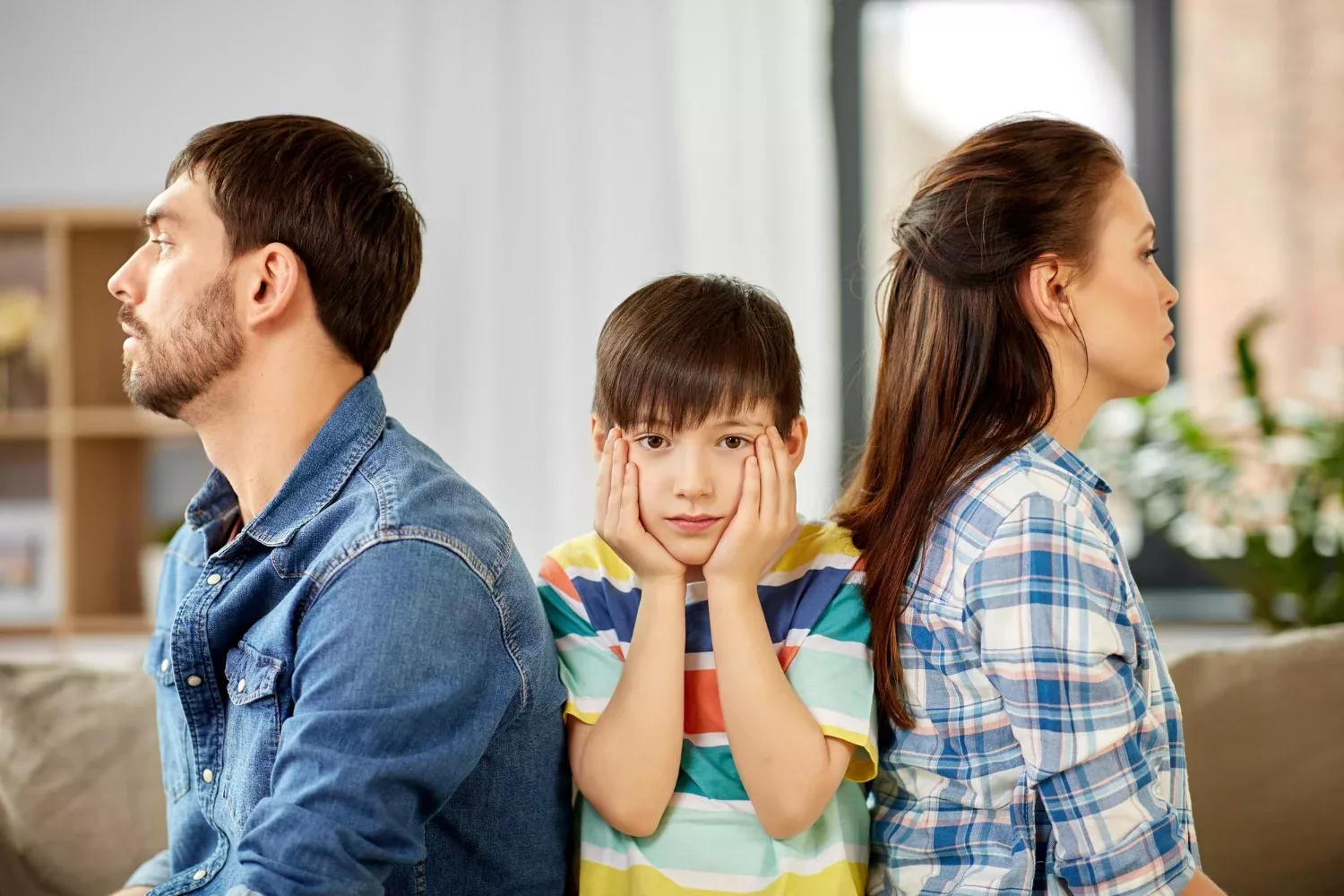Divorce Parents Arguing: Effects on Children and Strategies for Coping
Have you ever wondered how arguing parents can affect a child’s well-being during a divorce?
At TheBostonDivorceLawyer, we understand the impact of parental conflicts on a family’s dynamics.
In this article, we explore the importance of maintaining a peaceful environment for children during this challenging time.
According to research from the American Academy of Child and Adolescent Psychiatry, parental arguing during divorce can have negative impacts on children’s mental health. Children exposed to ongoing parental conflict may experience feelings of anxiety, depression, and low self-esteem. It is important for parents to seek help and find healthy ways to communicate during the divorce process to lessen the negative effects on their children.
Causes of arguments
Arguments between divorced parents often arise from a few common issues. Poor communication can lead to misunderstandings and disagreements. Different parenting styles, like one parent being stricter while the other is more relaxed, can also cause conflict.
Money problems can be a big factor too. Arguments about child support, alimony, or dividing property can create stress and lead to fights. The divorce itself can stir up strong emotions, like anger or bitterness, making it hard for parents to get along.
Frankly, jealousy and insecurity sometimes play a role as well. Seeing an ex with a new partner or disagreeing about custody and visitation can spark conflict.
Each family’s situation is different, so the reasons for arguments can vary. But by improving communication, addressing parenting style differences, managing financial stress, and dealing with emotional issues, parents might argue less and work better together.
Impact on children
Kids might think it’s their fault when their parents argue or feel confused about what’s going on. This can make them feel sad, angry, or anxious. They might have trouble paying attention at school or sleeping well at night. Some might act out, while others might become quieter than usual.
When parents argue a lot, kids might start to think it’s normal or feel like they have to pick a side. This can be very stressful and might hurt their relationships with both parents. They might feel stuck between their mom and dad, not sure who to trust or talk to.
Let me explain, seeing their parents fight can be very upsetting for kids. They might feel like their home isn’t safe anymore, making them feel insecure about the future. They might worry about what’s going to happen next or if their parents will ever stop fighting.
Kids are very sensitive to their parents’ feelings and can easily sense tension and conflict. When parents argue a lot, kids can feel scared, helpless, and sad. It’s important for parents to try to talk calmly and respectfully, even when they disagree, to help kids feel more secure and supported during tough times.
Coping mechanisms
Kids might feel scared, sad, or confused when the people they love argue. It’s tough for them to see their parents not getting along.
Some kids try to drown out the arguments by listening to music or playing with toys. Others might avoid being at home by hanging out with friends or joining activities outside of school.
Talking to someone they trust, like a grandparent or teacher, can help them feel better. Sharing their feelings with someone who understands can make a big difference.
Kids might also distract themselves by watching TV, playing video games, or doing homework. When all is said and done, staying busy can help them not think about the fighting.
It’s important for kids to know that their parents’ arguments are not their fault. They shouldn’t feel responsible for what’s happening. Taking care of themselves by sleeping well, eating healthy, and exercising can make them feel better during tough times.
Seeking help
Their loud voices can make you feel scared and confused. You might even think it’s your fault. But remember, you’re not alone. There are people who can help you through this tough time.
Talking to a teacher, a school counselor, or a trusted family member is a good first step. They can listen and offer support. It’s okay to tell them how you feel, even if it’s hard to talk about.
If things are really bad at home, you might need more help. keeping it real, you can call a helpline or speak to a therapist who can help you with your feelings. Don’t be afraid to ask for help when you need it.
Remember, you are not to blame for your parents’ arguments. It’s important to take care of yourself and get the support you need. Asking for help is a brave thing to do and can really help you feel better. Always remember, you deserve to feel safe and loved, no matter what’s happening at home.
Communication strategies
A key tactic is active listening, which means really hearing the other person without interrupting or getting defensive. It’s also very important for both parents to share their thoughts and feelings honestly and respectfully, using I statements instead of blaming each other.
Taking a break when things get heated can help calm things down. It gives both parents a chance to cool off and think before continuing. Setting rules for communication, like avoiding certain topics or harmful language, can also help reduce conflicts.
Non-verbal communication matters too. Frankly, making eye contact, using open body language, and avoiding aggressive gestures can make discussions more constructive. Speaking in a calm and neutral tone can also prevent misunderstandings and ease tension.
Getting help from a mediator or therapist can be useful in improving communication between divorced parents. A neutral third party can facilitate conversations, mediate disputes, and teach effective communication strategies.
In short, active listening, honest sharing, taking breaks, setting rules, paying attention to body language, and seeking outside help can support divorced parents in managing arguments better and focusing on their children’s well-being.

My Concluding Thoughts
It is evident that the impact of divorce on children can be significantly exacerbated when parents engage in frequent arguments. These heated interactions can lead to emotional distress, confusion, and feelings of instability for the children involved.
What TheBostonDivorceLawyers is recommending to read about is, it is very important for parents to prioritize effective communication, conflict resolution, and co-parenting strategies in order to minimize the negative effects of their disagreements on their children. Ultimately, a peaceful and amicable approach to divorce is essential for the well-being of the entire family.







